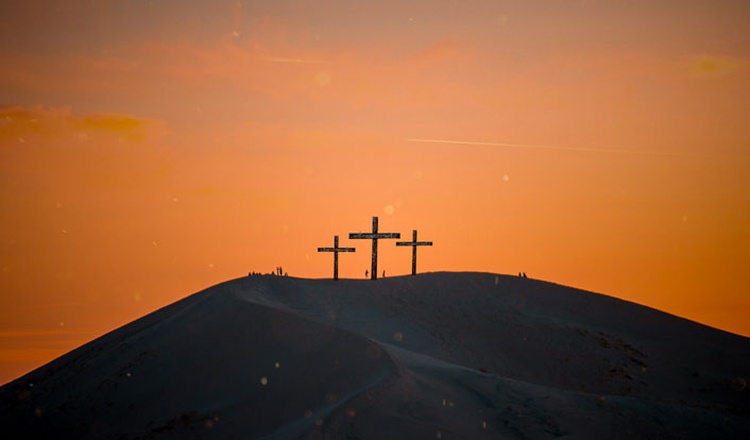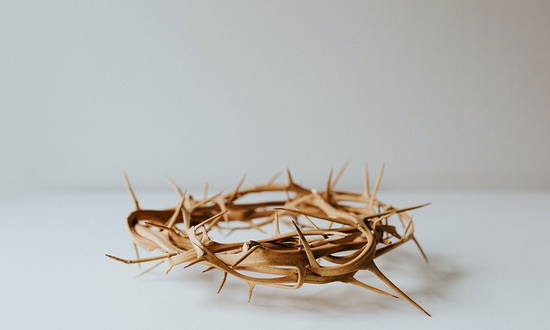I’d like to share some thoughts that might help put Good Friday and Easter Sunday in eternal perspective.
“Carrying his own cross, he went out to the place of the Skull (which in Aramaic is called Golgotha). There they crucified him, and with him two others—one on each side and Jesus in the middle” (John 19:17–18, NIV).
Today is “Good Friday,” commemorating the crucifixion of Jesus. But that torturous death of God’s Son was the single most horrible injustice in human history. So WHY do we call it Good? Why not call it Bad Friday or Horrific Friday?
Because out of the appallingly bad came what was inexpressibly good. And the good trumps the bad because the bad was temporary while the good is eternal. God’s love and grace come to us soaked in divine blood.
The Cross is God’s answer to the question, “Why don’t you do something about evil?” God did do something…something unimaginably great and powerful. One look at Jesus—at His incarnation and the redemption He accomplished for us—should silence the argument that God has withdrawn to some far corner of the universe where He keeps His hands clean and maintains His distance from human suffering. God does not merely empathize with our sufferings. He actually suffers. Jesus is God. What Jesus suffered, God suffered.
A powerful moment in the movie The Passion of the Christ occurs when Jesus, overwhelmed with pain and exhaustion, lies on the ground as guards kick, mock, and spit on Him. A horrified woman, her hand outstretched, pleads, “Someone, stop this!” The great irony is that Someone, God’s Son, was doing something unspeakably great that required it not be stopped. Had someone delivered Jesus from His suffering that day, He could not have delivered us from ours.
The Gospel accounts of the Crucifixion and Resurrection depict Christ’s deep unhappiness in Gethsemane and His anticipation of the Cross. Joy and happiness are overshadowed by sorrow and grief—until the release of death. What follows for Jesus is joy, but for the apostles it is overwhelming grief. Resurrection happiness soon shines its light, pushing sorrow into the shadows. Death is conquered, and our eternal happiness secured.
What would otherwise have been remembered as Terrible Friday is transformed into Good Friday because Christ’s resurrection works in reverse upon death. The hidden purpose in Christ’s suffering is no longer hidden—it becomes a spectacular cause for happiness. This is the gospel’s Good News! In the end, life conquers death, joy triumphs over suffering. Happiness, not sorrow, has the last word—and it will have the last word forever.
This secure future invades our present, so that even while death and sorrow remain, the new normal in Christ isn’t sorrow but happiness. As Easter worked in reverse to make Good Friday good, so our resurrection will work in reverse to bring goodness out of our most difficult days. Faith is a sort of forward memory in which we trust God’s promise of eternal happiness and experience a foretaste of that happiness in severe difficulty.
Have a wonderful Easter weekend with your families, realizing that every joy you experience now and ever will comes out of both the agony of Jesus on Good Friday and the triumph of Jesus on Easter Sunday. And every hardship you experience is something Jesus died to work together for your eternal good.
For more on Jesus and His death and resurrection, see Randy's devotional Face to Face with Jesus. For more perspectives on evil and suffering, see his blog articles and his books If God Is Good and 90 Days of God's Goodness.
Photo by Ben White on Christianpics.co




